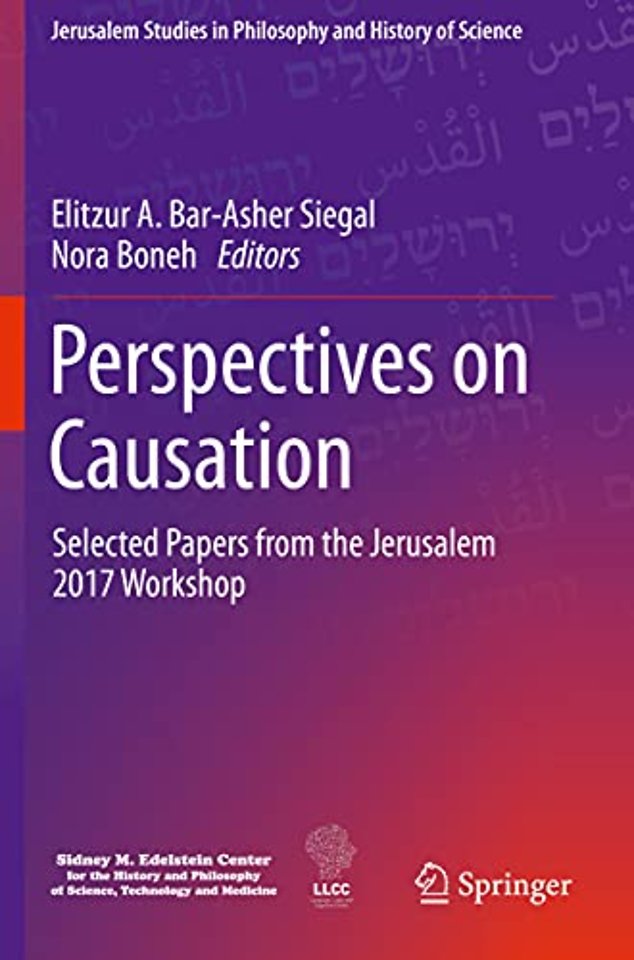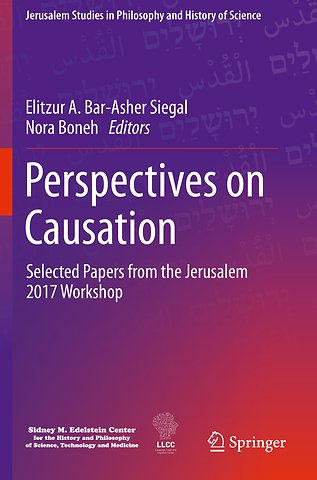Perspectives on Causation
Selected Papers from the Jerusalem 2017 Workshop
Samenvatting
This book explores relationships and maps out intersections between discussions on causation in three scientific disciplines: linguistics, philosophy, and psychology. The book is organized in five thematic parts, investigating connections between philosophical and linguistic studies of causation; presenting novel methodologies for studying the representation of causation; tackling central issues in syntactic and semantic representation of causal relations; and introducing recent advances in philosophical thinking on causation.
Beyond its thematic organization, readers will find several recurring topics throughout this book, such as the attempt to reduce causality to other non-causal terms; causal pluralism vs. one all-encompassing account for causation; causal relations pertaining to the mental as opposed to the physical realm, and more.
This collection also lays the foundation for questioning whether it is possible to evaluate available philosophical approaches to causation against the variety of linguistic phenomena ranging across diverse lexical and grammatical items, such as bound morphemes, prepositions, connectives, and verbs. Above all, it lays the groundwork for considering whether the fruits of the psychological-cognitive study of the perception of causal relations may contribute to linguistic and philosophical studies, and whether insights from linguistics can benefit the other two disciplines.
Specificaties
Inhoudsopgave
Net verschenen
Rubrieken
- aanbestedingsrecht
- aansprakelijkheids- en verzekeringsrecht
- accountancy
- algemeen juridisch
- arbeidsrecht
- bank- en effectenrecht
- bestuursrecht
- bouwrecht
- burgerlijk recht en procesrecht
- europees-internationaal recht
- fiscaal recht
- gezondheidsrecht
- insolventierecht
- intellectuele eigendom en ict-recht
- management
- mens en maatschappij
- milieu- en omgevingsrecht
- notarieel recht
- ondernemingsrecht
- pensioenrecht
- personen- en familierecht
- sociale zekerheidsrecht
- staatsrecht
- strafrecht en criminologie
- vastgoed- en huurrecht
- vreemdelingenrecht

